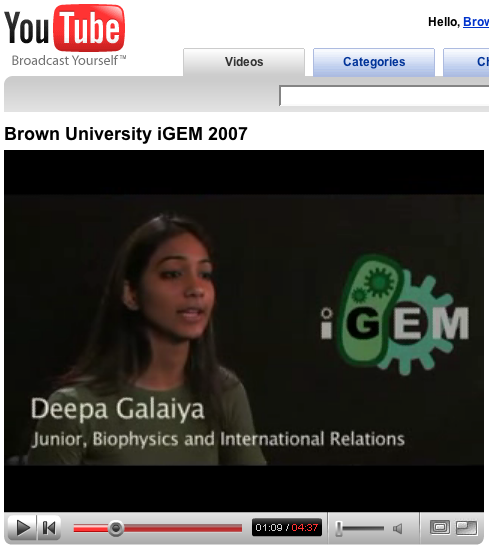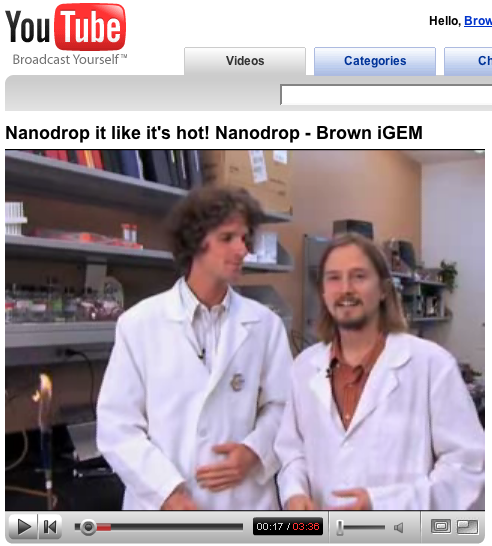Supplemental
From 2007.igem.org
Adam.Emrich (Talk | contribs) (→Ligation) |
|||
| (27 intermediate revisions not shown) | |||
| Line 19: | Line 19: | ||
margin:0px 0px 0px 20px | margin:0px 0px 0px 20px | ||
} | } | ||
| + | a:link{ | ||
| + | text-decoration:none; | ||
| + | |||
| + | color:#4b8ada | ||
| + | |||
| + | } | ||
| + | |||
| + | |||
| + | |||
| + | a:visited{ | ||
| + | |||
| + | text-decoration:none; | ||
| + | |||
| + | color:#4b8ada | ||
| + | |||
| + | } | ||
| + | |||
| + | |||
| + | |||
| + | a:active{ | ||
| + | |||
| + | text-decoration:none; | ||
| + | |||
| + | color:#4b8ada | ||
| + | |||
| + | } | ||
| + | |||
| + | |||
| + | |||
| + | a:hover{ | ||
| + | |||
| + | text-decoration:underline; | ||
| + | |||
| + | color:#4b8ada | ||
| + | |||
| + | } | ||
td { | td { | ||
padding: 3px 0px 0px 0px; | padding: 3px 0px 0px 0px; | ||
| Line 29: | Line 65: | ||
</style> | </style> | ||
<body> | <body> | ||
| - | <table | + | <table cellpadding=0 cellspacing=0 border=0> |
<tr> | <tr> | ||
<td width=682 align=left valign=top> | <td width=682 align=left valign=top> | ||
| Line 51: | Line 87: | ||
</td> | </td> | ||
<td width=99> | <td width=99> | ||
| - | <a href="community"><image src="https://static.igem.org/mediawiki/2007/ | + | <a href="community"><image src="https://static.igem.org/mediawiki/2007/e/e7/Comm_reg.gif" alt="Community" border=0></a> |
</td> | </td> | ||
<td width=99> | <td width=99> | ||
| - | <a href="supplemental"><image src="https://static.igem.org/mediawiki/2007/8/ | + | <a href="supplemental"><image src="https://static.igem.org/mediawiki/2007/8/82/Supp_pressed.gif" alt="Supplemental" border=0></a> |
</td> | </td> | ||
<td width=99> | <td width=99> | ||
| Line 67: | Line 103: | ||
<!-- PLACE CONTENT IN HERE--> | <!-- PLACE CONTENT IN HERE--> | ||
| - | == | + | == '''Protocols: From Transformations to Ligations''' == |
| - | + | ||
| - | + | ||
| - | + | ||
| - | == | + | ===Transformations:=== |
| - | + | 1. If using DNA from Registry, dilute with 9 uL of H2O. If using own DNA, use about 200 ng. | |
| + | 2. Thaw 50uL competent cells on ice. | ||
| - | August Update (August 22nd, 2007) | + | 3. Mix competent cells with 50uL CaCl2 (if competent cells need it). |
| + | |||
| + | 4. Add 4 uL of Registry DNA, or 200 ng of your own DNA to cells. | ||
| + | |||
| + | 5. Place in ice bath for 30 minutes. | ||
| + | |||
| + | 6. Heat shock at 42 C for 45-60 seconds. | ||
| + | |||
| + | 7. Place in ice bath for 2 minutes. | ||
| + | |||
| + | 8. Add 900 uL ice cold, antibiotic free LB to cells. | ||
| + | |||
| + | 9. Incubate at 37 C for 90 minutes in a shaking incubator. | ||
| + | |||
| + | 10. Dilute as desired, make necessary controls, and plate cells (200 uL per plate). | ||
| + | |||
| + | 11. Incubate upside down at 37 C for 18-24 hours, then refrigerate. | ||
| + | |||
| + | ===Miniprep:=== | ||
| + | |||
| + | 1. Pick a single colony off of plate of transformed cells. | ||
| + | |||
| + | 2. Mix colony with 5 mL of LB inside culture tube. Use appropriate antibiotic. | ||
| + | |||
| + | 3. Place culture tube in mixing incubator at 37 C overnight. | ||
| + | |||
| + | 4. Remove from incubator, spin culture tubes at 3000 rpm for 10 minutes. Remove supernatant, then use Qiagen miniprep kit to extract plasmids. | ||
| + | |||
| + | ===Restriction Digest=== | ||
| + | |||
| + | <html>1. Combine the following ingredients: | ||
| + | |||
| + | a. 1 uL of each restriction enzyme to be used. | ||
| + | b. 500-5000 ng of DNA. | ||
| + | c. 5 uL of compatible buffer (if buffer is not compatible with a restriction enzyme, | ||
| + | more of that enzyme should be used). | ||
| + | d. 0.5 uL of BSA. | ||
| + | e. 1 uL of Antarctic Phosphatase. | ||
| + | f. 5 uL of Antarctic Phosphatase Buffer. | ||
| + | g. Enough H2O for 50 uL overall volume. | ||
| + | </html> | ||
| + | |||
| + | 2. Incubate at 37 C for 2-4 hours (or overnight). | ||
| + | |||
| + | 3. Incubate at 80 C for 20 minutes to heat inactivate enzymes. | ||
| + | |||
| + | ===Ethanol Precipitation=== | ||
| + | |||
| + | 1. Add 2 volumes ice cold absolute ethanol to sample. | ||
| + | |||
| + | 2. Incubate 1 hr at -80°C. | ||
| + | |||
| + | 3. Centrifuge for 30 minutes at 0°C at maximum speed (generally >10000 g at least). | ||
| + | |||
| + | 4. Remove supernatant. | ||
| + | |||
| + | 5. Wash with 750-1000 μL room-temperature 95% ethanol. | ||
| + | |||
| + | 6. Centrifuge for 10 minutes at 4°C at maximum speed (generally >10000 g at least). | ||
| + | |||
| + | 7. Let air dry on benchtop. | ||
| + | |||
| + | 8. Resuspend in an appropriate volume of H2O. | ||
| + | |||
| + | |||
| + | ===Ligation=== | ||
| + | |||
| + | There are two options for ligations, 3A and standard. These are more general protocols, as we did not find a specific way to do them with a high rate of success. | ||
| + | |||
| + | 3A Ligations | ||
| + | 1. For these ligations the following are necessary: | ||
| + | a. The prefix part cut with EcoRI and SpeI. | ||
| + | b. The suffix part cut with XbaI and PstI. | ||
| + | c. A construction plasmid with P1010 cut out of it with EcoRI and PstI. The construction plasmid has | ||
| + | to have a different antibiotic resistance than both of the inserted parts. | ||
| + | 2. Mix the three together with T4 DNA ligase and ligation buffer. | ||
| + | 3. Heat inactivate after certain period of time. | ||
| + | 3. Use products to transform competent cells. | ||
| + | 4. Plate out the cells on a plate with an antibiotic corresponding to resistance of the construction plasmid. | ||
| + | |||
| + | Standard Ligations | ||
| + | 1. After Ethanol Precipitation of Digested parts, run DNA through gel to extract parts of correct length. | ||
| + | 2. Ethanol Precipitate these parts. | ||
| + | 3. Add the insert and the backbone together in solution with T4 DNA ligase and ligase buffer. | ||
| + | 4. Heat inactivate after certain period of time. | ||
| + | 5. Ethanol Precipitate product. | ||
| + | 6. Gel extract to select for plasmids of appropriate length. | ||
| + | 7. Ethanol precipitate these plasmids. | ||
| + | 8. Use them to Transform competent cells. | ||
| + | 9. Plate cells with appropriate antibiotics. | ||
| + | </html> | ||
| + | |||
| + | == '''Presentations''' == | ||
| + | |||
| + | Here are copies of our presentations delivered to advisors, faculty, and friends of iGEM: | ||
| + | |||
| + | August Update (August 22nd, 2007): | ||
[[Media:BrowniGEM_8-22-07.ppt]] | [[Media:BrowniGEM_8-22-07.ppt]] | ||
| + | |||
| + | Synthetic Biology @ Brown (August 10th): | ||
| + | [[Media:Brown_iGEM_8-10-07.ppt]] | ||
| + | |||
| + | High School Presentation (July 30th): | ||
| + | [[Media:Brown_iGEM_7-30-07.ppt]] | ||
July Update (July 18th, 2007): | July Update (July 18th, 2007): | ||
| Line 85: | Line 221: | ||
June Update (June 15th, 2007): | June Update (June 15th, 2007): | ||
[[Media:Brown_iGEM_6-15-07.ppt]] | [[Media:Brown_iGEM_6-15-07.ppt]] | ||
| + | |||
| + | =='''Videos'''== | ||
| + | |||
| + | [[Image:BrowniGEMYoutube2.jpg|thumb|left|4 minute Intro to iGEM http://youtube.com/watch?v=XpAhZd0Xu40]] [[Image:BrowniGEMYoutube1.jpg|thumb|left|Nanodrop it like it's hot! http://youtube.com/watch?v=pKT4Zrjeh6s]] | ||
<!-- PLACE CONTENT IN HERE--> | <!-- PLACE CONTENT IN HERE--> | ||
| Line 119: | Line 259: | ||
</table> | </table> | ||
</td> | </td> | ||
| - | <td | + | <td bgcolor="#e8e8e8" valign=top align=left> |
| - | + | ||
</td> | </td> | ||
</tr> | </tr> | ||
</table> | </table> | ||
</html> | </html> | ||
Latest revision as of 04:12, 27 October 2007

|
|||||||||||||||||

